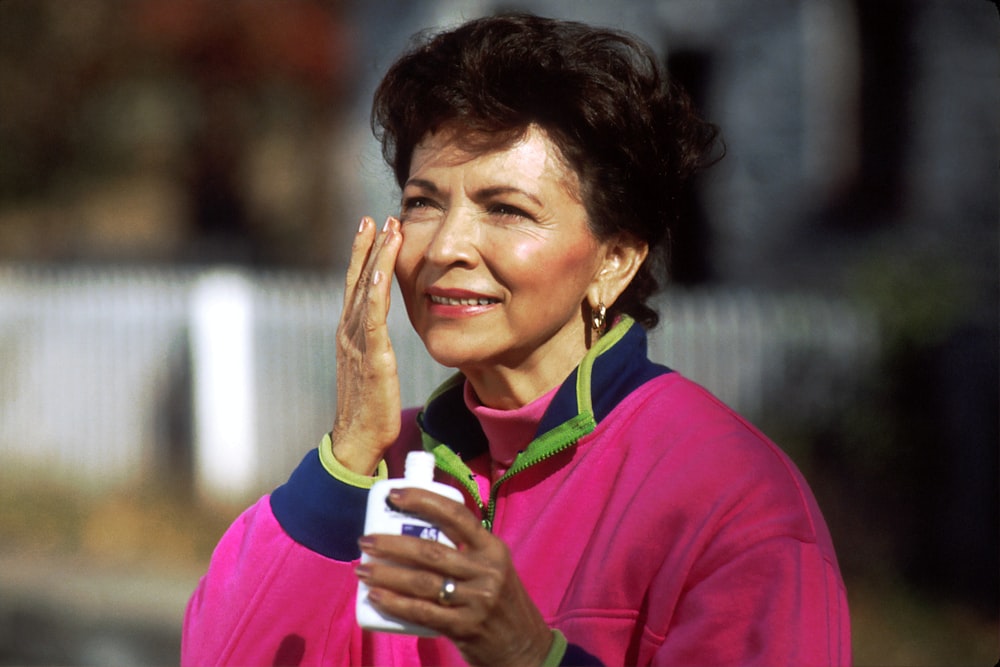
Why is sunscreen so important to wear all year long, not just in the summer? Being concerned about your skin’s health is a necessity, not just a vanity habit. After all, the skin is your body’s largest organ. Therefore, you must take good care of your skin as it comes in contact with the elements of the outside world. It’s especially crucial to protect your skin from sun exposure.
Your skin is your first line of defence against harsh environmental elements, especially the sun’s rays. This is true all year long, not just in the summer.
Moreover, your skin also offers support and protection for your entire musculoskeletal system and other major organs. It holds in bodily fluids, prevents dehydration, regulates your temperature, and prevents microbes from infiltrating. Without your skin, you would be much more susceptible to infections, free-radical damage, pollutants, and more.
Your skin also contains tons of nerve endings that make you feel the heat, the cold, and even pain. Because it plays such a significant role in protecting your body, you need to protect your skin. Apart from your usual cleansing, toning, and moisturizing skincare regimen, you need sun protection. Daily application of sunscreen should be part of your morning ritual.
Why Does Sun Protection Matter?
You may think that you only need sunscreen when you’re off to spend a day at the beach when you’ll be exposed to the sun for a long time. Most people keep sunblock handy during the summer months only. However, you need to apply it every day, even when it is cloudy – and even when it’s winter.
At the peak of winter, you are still susceptible to sun damage. If you don’t apply sunscreen all year long, you will be putting your skin at risk. So, why is sunscreen important? Here’s why you need sunblock daily:

Protect Against Exposure to Harsh UV Rays
The sun’s ultraviolet rays are always present, even in the wintertime. These harsh UVA and UVB rays penetrate the cloud barrier. Hence, even if it’s not sunny, you are unknowingly getting burned.
In fact, you are the most susceptible to sun damage during these times because your defences are down. For best results, make it a habit to apply sunscreen with at least an SPF 30 rating. This offers you the best protection against the sun.
Prevent Premature Aging
Constant exposure to the sun’s rays leads to photoaging. This means your skin’s collagen production breaks down. This component is responsible for making your skin look moist and supple. As a result of collagen breakdown, your skin will look leathery and dry. You will also notice the following issues:
- Sagging
- Laugh lines
- Crows feet
- Wrinkles
If you constantly go out with sunblock, you will experience visible signs of ageing and look a lot older faster. Hence, you must invest in sunscreen and take the time to apply it daily before you leave the house. You may also need reapplication, depending on where you go and the SPF rating of your chosen sunblock.
Maintain an Even Skin Tone
Another effect of sun damage is skin discolouration or hyperpigmentation. This means you can develop freckles, sun spots, or dark spots like melasma, which progressively get worse. Fortunately, you can keep all of that at bay with sunscreen.
Consistent application of sunscreen will help you maintain smooth, supple, and even skin tone. Ensure you generously apply them to your face, neck, and body. Fortunately, sunscreen works for all skin types, so you are bound to find a product that fits your skin profile.
Lower Your Risk of Skin Cancer
Melanoma or skin cancer is a growing concern for many people, especially now that the ozone layer is depleting and more harsh rays enter the atmosphere. Here’s the thing, your skin has melanin, which offers some protection against the sun. The darker the skin, the more melanin there is. But, this doesn’t mean you have a free pass to get sunburn just because you have more melanin.
Though people with fair skin are more likely to burn and develop skin cancer, people with darker skin are also at risk. Thus, everyone should prioritize wearing sunblock, no matter the skin tone. UV rays do not just cause sunburn on the skin’s top layers. It penetrates deep and causes damage to cells, resulting in metastatic growths that can spread to other organ systems.
Remember, sunburn is a radiation burn. Though you may not see the UV rays, you can feel its heat. Long-term and excessive exposure will not just leave you with superficial skin issues but result in cancer. Therefore, you must wear sunscreen every day as it is the best form of prevention. For the best coverage, use a broad-spectrum product that protects against both UVB and UVA rays.
How Does Sunscreen Work?
Sunscreen lotion contains SPF, also known as the ‘sun protection factor. This product is an indispensable component of your routine regardless of the season. Do not leave the house without wearing it to prevent sun damage.
SPF is the number assigned to your sunscreen that indicates the product’s level of protection. Products with a higher number offer stronger strength with better coverage. In addition, the number indicates how much time the product can protect your skin.
To illustrate, humans usually experience sunburn around the 15-minute mark of exposure. Thus, a cream with SPF 40 provides forty times protection. So 40 multiplied by 15 minutes results in 600 minutes, the amount of protection you receive from your sunblock. For this reason, you need to reapply your sunscreen throughout the day.

What is the Proper Application Method of Sunscreen?
A common misconception is that doubling the application of SPF 30 will offer twice the protection. This is not true. Sunscreen was not designed this way, so be cautious with excessive application because you will only end up clogging your pores with too many products. Applying a second layer of SPF 30 does not double-up your protection.
For best results, use the “teaspoon and shot glass rule.” This means using a teaspoon of sunscreen on the face and neck. Meanwhile, you use a shot glass amount of around one ounce for the other exposed areas of your body.
Sunscreen needs time to work and get absorbed into the skin. Hence, you must apply it for at least 15 minutes before you step out into the sun. Reapply your sunscreen if you are outdoors for long periods. You must also consider reapplication if you sweat a lot. or spend time in the water.
Most of all, remember that you must not be careless or complacent even if you’ve put on sunscreen. Using high-level SPF often leads to a false sense of security. As a result, people stay out longer and forget to reapply, wear a hat, or use coverups. In this scenario, you will end up with a lot of UV damage.
What Sunscreen Brand Should You Use?
With hundreds and hundreds of sunscreen products out there, choosing the best sunscreen for your body and face can be quite confusing. When selecting a high-quality sunscreen for daily use, it would help to take a look at the label for the following, apart from the SPF rating:
- Active ingredients
- Added vitamin components
- Moisture content or formulation
- Water-resistance
- Broad-spectrum coverage
For example, if you have sensitive skin, mineral ingredients may work better than chemical-based ones. However, the former may break down faster with sun exposure, so constant reapplication is a must.
Additionally, take note of your skin type. For instance, if you have excessively oily skin, a water-based product may work well for you. Meanwhile, if you have dry skin, a more emollient, cream-based sunblock may suit you better.
Most of all, take a look at your daily routine. Does your job require you to stay in the field outdoors, or do you have a desk job where you’re inside most of the day? Will you be using your sunblock for hiking or a beach vacation? All of these details can help you choose.
If you’ll be outside for longer periods of time, you’ll likely want an SPF 50 or SPF 60. However, if your only time outdoors is a short 15-minute walk to work and back each day, SPF 30 will likely be just fine.
Why is Sunscreen Important All Year Long? The Bottom Line
The bottom line is that you cannot be forgetful when it comes to sun protection, not even in the fall or wintertime. This holds true, especially for people who have a genetically higher risk of developing skin cancer. This also applies to people who suffer from autoimmune conditions like psoriasis or genetic diseases such as albinism or xeroderma.
In these cases, you must be more careful and vigilant with sunscreen application than the average person. To learn about your skin cancer risk, skin type and skin tendencies, get your genetic skin profile report from CircleDNA.







Comments are closed.